Abarth 500 595 695 vs Volvo EC40 – Performance, range & efficiency compared
Two cars, one duel: Abarth 500 595 695 meets Volvo EC40.
Which one wins in performance, efficiency and value for money? Find out now!
Costs and Efficiency:
Price and efficiency are often the first things buyers look at. Here it becomes clear which model has the long-term edge – whether at the pump, the plug, or in purchase price.
Abarth 500 595 695 has a significantly advantage in terms of price – it starts at 32600 £, while the Volvo EC40 costs 46600 £. That’s a price difference of around 14058 £.
In terms of energy consumption, the advantage goes to the Volvo EC40: with 16.20 kWh per 100 km, it’s hardly perceptible more efficient than the Abarth 500 595 695 with 17.10 kWh. That’s a difference of about 0.90 kWh.
As for range, the Volvo EC40 performs convincingly better – achieving up to 584 km, about 319 km more than the Abarth 500 595 695.
Engine and Performance:
Under the bonnet, it becomes clear which model is tuned for sportiness and which one takes the lead when you hit the accelerator.
When it comes to engine power, the Volvo EC40 has a significantly edge – offering 442 HP compared to 155 HP. That’s roughly 287 HP more horsepower.
In acceleration from 0 to 100 km/h, the Volvo EC40 is decisively quicker – completing the sprint in 4.60 s, while the Abarth 500 595 695 takes 7 s. That’s about 2.40 s faster.
In terms of top speed, the Volvo EC40 performs somewhat better – reaching 180 km/h, while the Abarth 500 595 695 tops out at 155 km/h. The difference is around 25 km/h.
There’s also a difference in torque: Volvo EC40 pulls clearly stronger with 670 Nm compared to 235 Nm. That’s about 435 Nm difference.
Space and Everyday Use:
Cabin size, boot volume and payload all play a role in everyday practicality. Here, comfort and flexibility make the difference.
Seats: Volvo EC40 offers to a small extent more seating capacity – 5 vs 4.
In curb weight, Abarth 500 595 695 is significantly lighter – 1410 kg compared to 2065 kg. The difference is around 655 kg.
In terms of boot space, the Volvo EC40 offers convincingly more room – 404 L compared to 185 L. That’s a difference of about 219 L.
In maximum load capacity, the Volvo EC40 performs decisively better – up to 1196 L, which is about 646 L more than the Abarth 500 595 695.
When it comes to payload, Volvo EC40 a bit takes the win – 435 kg compared to 385 kg. That’s a difference of about 50 kg.
Who wins the race?
The Volvo EC40 proves to be outperforms in nearly all aspects and therefore becomes our DriveDuel Champion!
Volvo EC40 is the better all-rounder in this comparison.
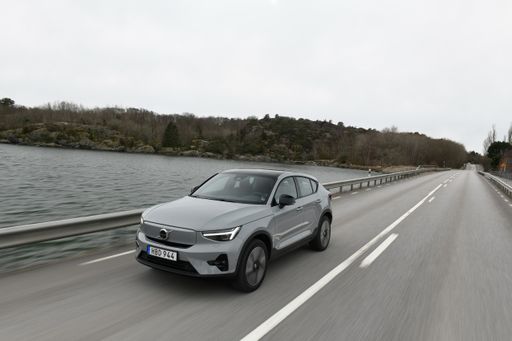 @ Volvo Cars
@ Volvo Cars
Volvo EC40
Abarth 500 595 695
The Abarth 500, particularly in its 595 and 695 renditions, captures the spirit of Italian motoring with its compact yet aggressive design. Known for its lively performance and distinctive styling, this little powerhouse is a joy to drive, offering an engaging experience that appeals to enthusiasts. With its rich motorsport heritage, the Abarth 500 embodies the essence of fun and excitement on both the streets and the race track.
details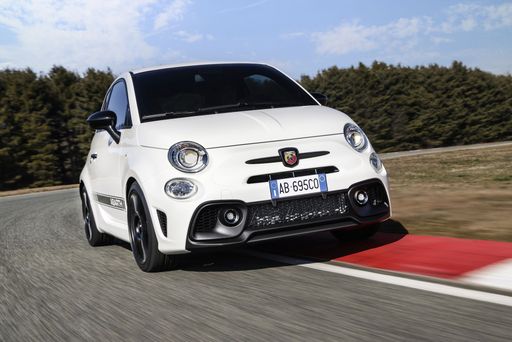 @ Abarth / Stellantis Media
@ Abarth / Stellantis Media
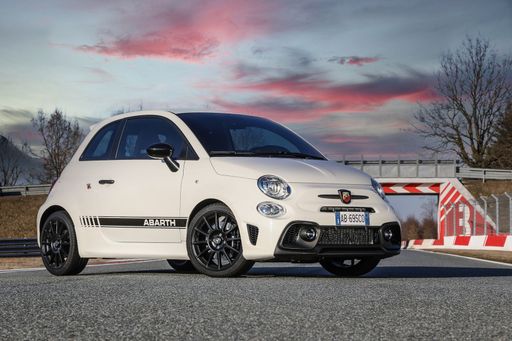 @ Abarth / Stellantis Media
@ Abarth / Stellantis Media
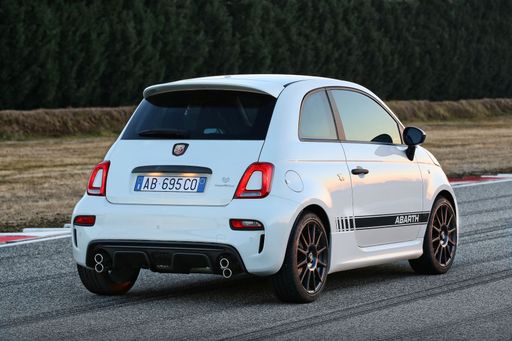 @ Abarth / Stellantis Media
@ Abarth / Stellantis Media
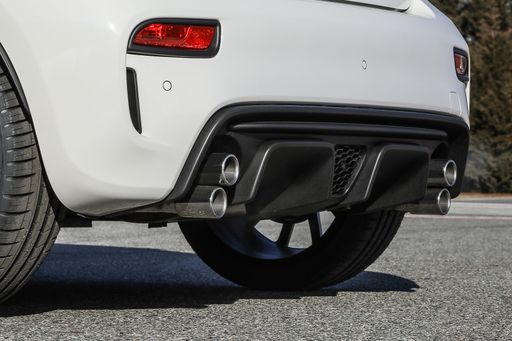 @ Abarth / Stellantis Media
@ Abarth / Stellantis Media
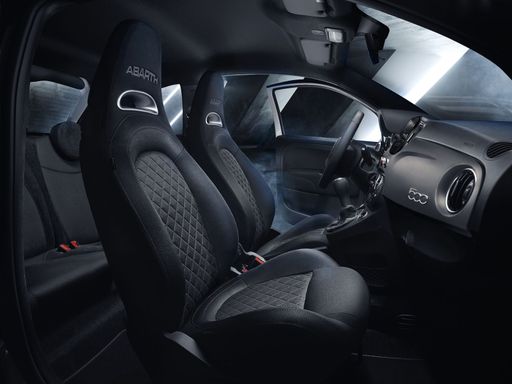 @ Abarth / Stellantis Media
@ Abarth / Stellantis Media
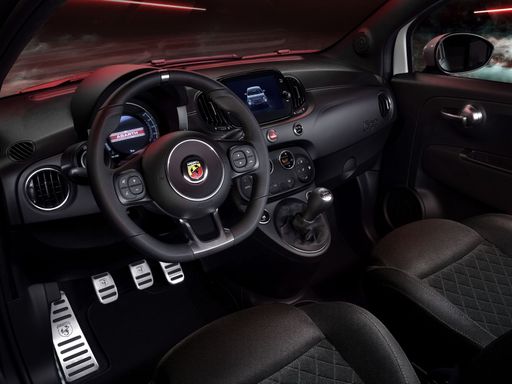 @ Abarth / Stellantis Media
@ Abarth / Stellantis Media
Volvo EC40
The Volvo EC40 seamlessly combines cutting-edge technology with sleek Scandinavian design, offering a refined driving experience. With its advanced safety features and user-friendly infotainment system, this model caters to both seasoned drivers and modern tech enthusiasts. The vehicle's impressive efficiency and environmentally conscious engineering make it a standout choice for those seeking sustainability without compromising on style.
details @ Volvo Cars
@ Volvo Cars
 @ Abarth / Stellantis Media
@ Abarth / Stellantis Media
|
 @ Volvo Cars
@ Volvo Cars
|
|
|
|
Costs and Consumption |
|
|---|---|
|
Price
32600 - 39400 £
|
Price
46600 - 59000 £
|
|
Consumption L/100km
-
|
Consumption L/100km
-
|
|
Consumption kWh/100km
17.1 - 18.8 kWh
|
Consumption kWh/100km
16.2 - 17.3 kWh
|
|
Electric Range
242 - 265 km
|
Electric Range
488 - 584 km
|
|
Battery Capacity
37.80 kWh
|
Battery Capacity
67 - 79 kWh
|
|
co2
0 g/km
|
co2
0 g/km
|
|
Fuel tank capacity
-
|
Fuel tank capacity
-
|
Dimensions and Body |
|
|---|---|
|
Body Type
Hatchback
|
Body Type
SUV
|
|
Seats
4
|
Seats
5
|
|
Doors
3
|
Doors
5
|
|
Curb weight
1410 - 1435 kg
|
Curb weight
2065 - 2185 kg
|
|
Trunk capacity
185 L
|
Trunk capacity
404 L
|
|
Length
3673 mm
|
Length
4440 mm
|
|
Width
1682 mm
|
Width
1873 mm
|
|
Height
1518 mm
|
Height
1591 mm
|
|
Max trunk capacity
550 L
|
Max trunk capacity
1196 L
|
|
Payload
370 - 385 kg
|
Payload
395 - 435 kg
|
Engine and Performance |
|
|---|---|
|
Engine Type
Electric
|
Engine Type
Electric
|
|
Transmission
Automatic
|
Transmission
Automatic
|
|
Transmission Detail
-
|
Transmission Detail
Reduction Gearbox
|
|
Drive Type
Front-Wheel Drive
|
Drive Type
Rear-Wheel Drive, All-Wheel Drive
|
|
Power HP
155 HP
|
Power HP
238 - 442 HP
|
|
Acceleration 0-100km/h
7 s
|
Acceleration 0-100km/h
4.6 - 7.3 s
|
|
Max Speed
155 km/h
|
Max Speed
180 km/h
|
|
Torque
235 Nm
|
Torque
420 - 670 Nm
|
|
Number of Cylinders
-
|
Number of Cylinders
-
|
|
Power kW
114 kW
|
Power kW
175 - 325 kW
|
|
Engine capacity
-
|
Engine capacity
-
|
General |
|
|---|---|
|
Model Year
2023
|
Model Year
2024
|
|
CO2 Efficiency Class
A
|
CO2 Efficiency Class
A
|
|
Brand
Abarth
|
Brand
Volvo
|
Is the Abarth 500 595 695 offered with different drivetrains?
The Abarth 500 595 695 is offered with Front-Wheel Drive.
The prices and data displayed are estimates based on German list prices and may vary by country. This information is not legally binding.
